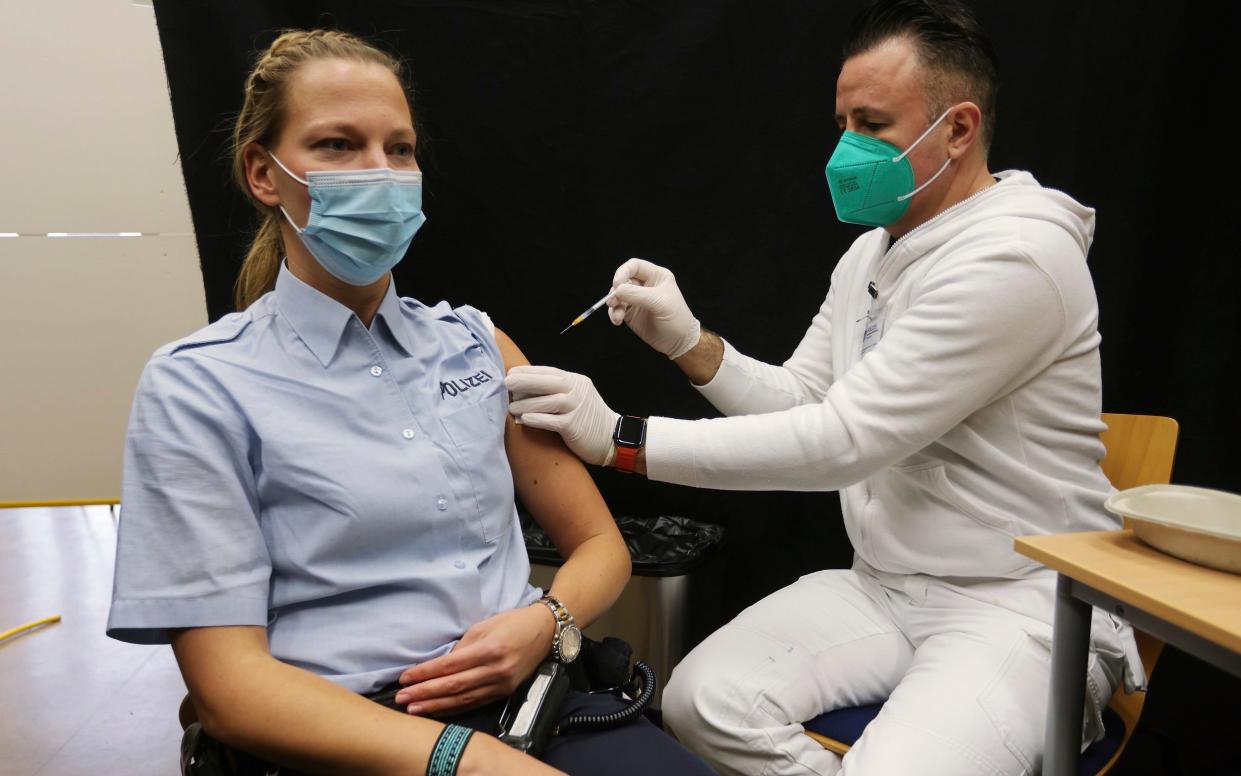Angela Merkel backs compulsory Covid jabs as Germany agrees de facto lockdown for unvaccinated

- Oops!Something went wrong.Please try again later.
- Oops!Something went wrong.Please try again later.
Angela Merkel has backed compulsory vaccinations as leaders agreed to bring in a de facto lockdown for the unvaccinated.
The German chancellor said that people who aren't vaccinated will be excluded from nonessential shops, as well as cultural and recreational venues.
Speaking after a meeting with federal and state leaders, she said the measures were necessary in light of concerns that hospitals in Germany could become overloaded with people suffering Covid-19 infections.
"The situation in our country is serious," Merkel told reporters in Berlin, calling the measure an "act of national solidarity".
Mrs Merkel herself backed the most contentious proposal of imposing a general vaccine mandate. She said parliament would debate the proposal with input from the country's national ethics committee.
If passed, it could take effect as early as February, Mrs Merkel said, adding that she would have voted in favour of the measure if she were still a member of parliament.
She said officials had also agreed to require masks in schools, impose new limits on private meetings and aim for 30 million vaccinations by the end of the year - an effort that will be boosted by allowing dentists and pharmacists to administer the shots.
Just over 68 per cent of the population in Germany is fully vaccinated, far below the minimum of 75 per cent the government is aiming for.
There have been large protests against pandemic measures in the past in Germany and the vaccine mandate is likely to be opposed by a minority, though opinion polls show most Germans are in favor.
Finance Minister Olaf Scholz, who is expected to be elected chancellor by a centre-Left coalition next week, has also backed a general vaccine mandate, but favours letting lawmakers vote on the issue according to their personal conscience rather than party lines.
Under the new measures announced today, the unvaccinated will be barred from restaurants, pubs, cinemas, gyms, cultural events and non-essential shops.
The restrictions, which will not apply to the fully jabbed, are already in force in several German regions.
The unvaccinated will also be barred from Christmas markets in those regions where they are still open. Many regions have already ordered the traditional markets to close.
While the draft agreement focuses on restrictions for the unvaccinated, there are also measures that will affect the fully jabbed. Nightclubs are to be closed in hard-hit regions and facemasks are to be made compulsory in schools again.
The meeting comes two days after Mr Scholz agreed to put compulsory vaccination to the German parliament.
He pledged not to whip MPs and to allow them a free vote, but said he would support the measure personally.
He said vaccination would only be made compulsory once everyone has the chance to get jabbed, and will not be introduced until February or March of next year.

